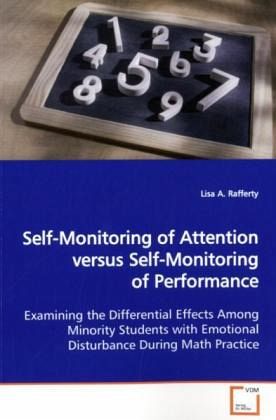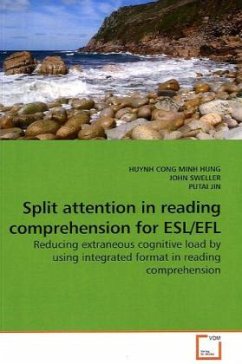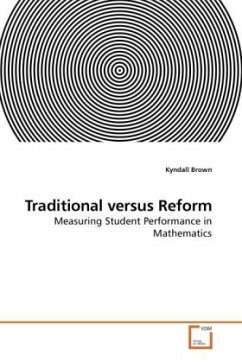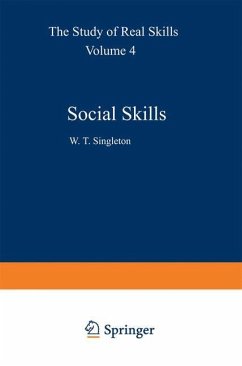
Self-Monitoring of Attention versus Self-Monitoring of Performance
Examining the Differential Effects Among Minority Students with Emotional Disturbance During Math Practice
Versandkostenfrei!
Versandfertig in 6-10 Tagen
32,99 €
inkl. MwSt.

PAYBACK Punkte
16 °P sammeln!
Although students with emotional disturbance are commonly known for their social behavioral deficits, they often have academic deficits as well. Unfortunately, much of the intervention research and many of the practices used with this population focus upon their social deficits and fail to focus upon ameliorating their academic deficits. Clearly, there is a need to identify research-based interventions that focus on improving both the social and academic deficits exhibited by students with emotional disturbance. The purpose of this study was to examine the differential effects of self-monitori...
Although students with emotional disturbance are
commonly known for their social behavioral deficits,
they often have academic deficits as well.
Unfortunately, much of the intervention research and
many of the practices used with this population
focus upon their social deficits and fail to focus
upon ameliorating their academic deficits. Clearly,
there is a need to identify research-based
interventions that focus on improving both the
social and academic deficits exhibited by students
with emotional disturbance. The purpose of this
study was to examine the differential effects of
self-monitoring of attention (SMA) versus self-
monitoring of performance (SMP), during independent
math practice, on the academic and social behaviors
of six, elementary-aged, African American males
identified as having emotional and/or behavioral
disabilities. This book provides a summary of the
previous research used to investigate the effects of
SMA versus SMP, the methodology used in this study,
the results, a discussion of the results,
implications for classroom practice, limitations of
the current study, and suggestions for future
research.
commonly known for their social behavioral deficits,
they often have academic deficits as well.
Unfortunately, much of the intervention research and
many of the practices used with this population
focus upon their social deficits and fail to focus
upon ameliorating their academic deficits. Clearly,
there is a need to identify research-based
interventions that focus on improving both the
social and academic deficits exhibited by students
with emotional disturbance. The purpose of this
study was to examine the differential effects of
self-monitoring of attention (SMA) versus self-
monitoring of performance (SMP), during independent
math practice, on the academic and social behaviors
of six, elementary-aged, African American males
identified as having emotional and/or behavioral
disabilities. This book provides a summary of the
previous research used to investigate the effects of
SMA versus SMP, the methodology used in this study,
the results, a discussion of the results,
implications for classroom practice, limitations of
the current study, and suggestions for future
research.












